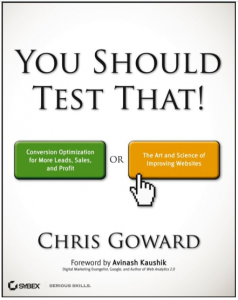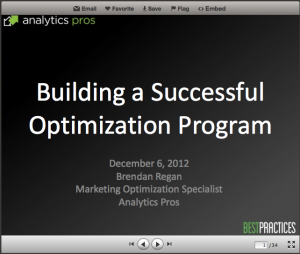 I’ve written a fair amount over the years about using the 3 stages of the decision-making process as a framework for doing analysis and Optimization. At each stage of the process, the prospect’s mindset and needs are different. Therefore, your tactics for persuasion, testing, and Optimization should be different.
I’ve written a fair amount over the years about using the 3 stages of the decision-making process as a framework for doing analysis and Optimization. At each stage of the process, the prospect’s mindset and needs are different. Therefore, your tactics for persuasion, testing, and Optimization should be different.
Today I’m going to focus on “Middle” and “Late Stage” prospects, and on one crucial tactic for converting prospects at these stages of their conversion journey. The tactic is more often used in B2B (and especially SaaS) marketing, but I believe it can be applied effectively in B2C scenarios as well.
I call the tactic for this post the “Rebuttal” Approach. It’s a borrowed legal phrase which is also used in politics; especially in debates. A rebuttal is an expected opportunity to counter-argue known points that your opponent has made. In political debates, an opponent is often given, say, 30 seconds to make a rebuttal argument against a specific point just made.
In Optimization, the Rebuttal Approach is your chance as a marketer to make a counterargument against your competition in order to convert Middle and Late Stage prospects. This is a crucial tactic because prospects tend to engage in a lot of comparison research or shopping before they make a decision. A prospect on your site in Middle and Late stages is almost always conducting some sort of comparison between you and your competitors. Continue reading →


 I’ve written a fair amount over the years about using the
I’ve written a fair amount over the years about using the  I’m going to answer both in this post as I lay out a basic framework for how to “do” web analytics in the context of Optimization. I compare web data analysis to looking with different “lenses” at the same set of data depending on the context. For example, if I’m doing analysis on “site performance,” I would take a different view of the data than if I were doing “campaign analysis” or “content performance analysis.”
I’m going to answer both in this post as I lay out a basic framework for how to “do” web analytics in the context of Optimization. I compare web data analysis to looking with different “lenses” at the same set of data depending on the context. For example, if I’m doing analysis on “site performance,” I would take a different view of the data than if I were doing “campaign analysis” or “content performance analysis.”